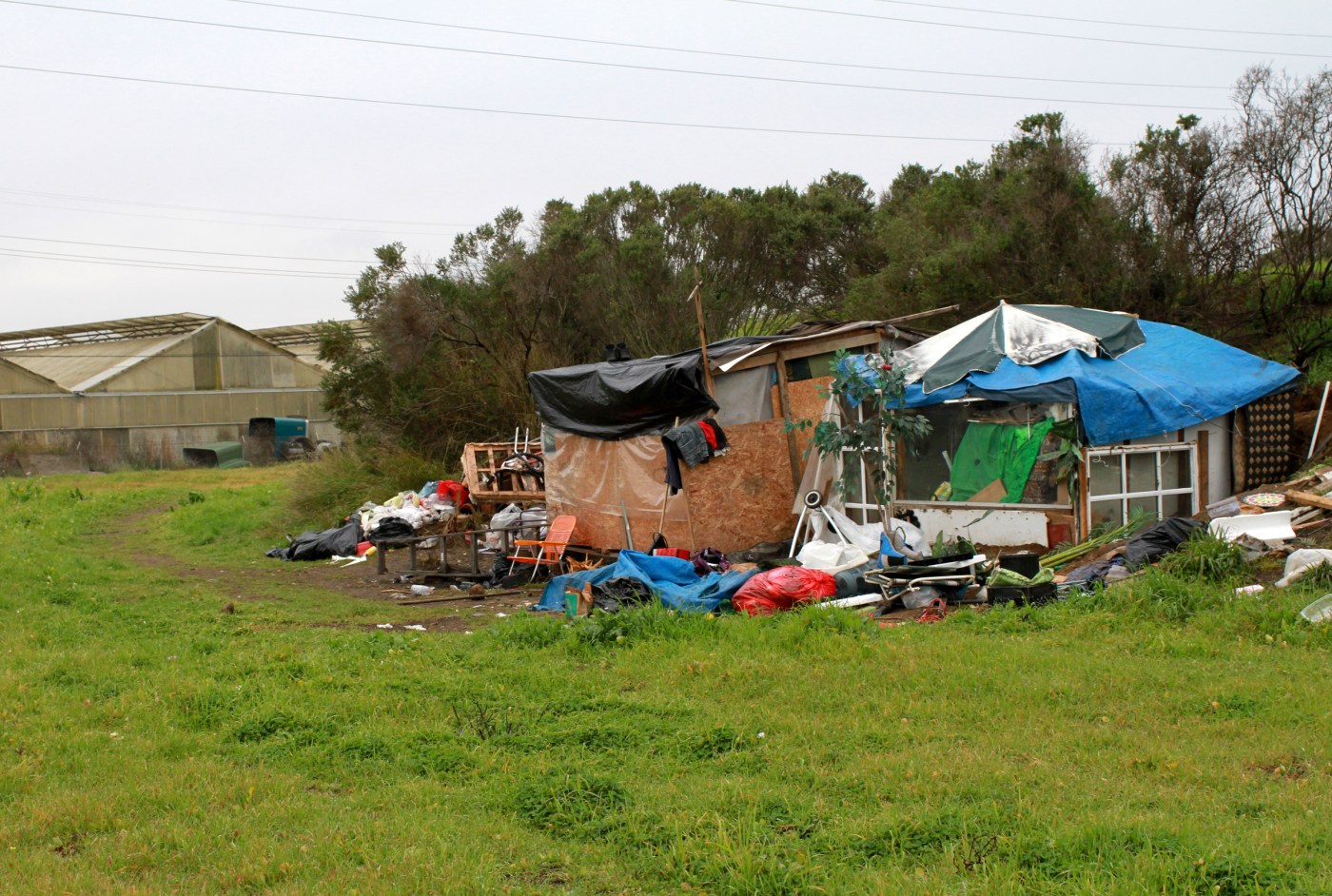San Mateo County Supervisors this week unanimously approved a controversial measure that would allow authorities to charge homeless people who refuse shelter with a crime.
Under the ordinance, people who set up camp in unincorporated areas, reject two offers of shelter beds and have received two written warnings from law enforcement could face misdemeanor charges.
Despite several county residents and stakeholders who asserted that the introduction of this law would criminalize homelessness, board members believe the measure is still a compassionate way to reduce homelessness in the county.
“Think about this. Forty homeless people die in San Mateo County every year…. That’s just not acceptable. As a society, we shouldn’t tolerate that,” Supervisor Warren Slocum, board president, said in a statement.
Slocum introduced the ordinance with Supervisor David Pine.
“The hope is it will be a tool to help move individuals into shelter and will give us additional abilities to achieve our goals of reaching functional zero homelessness,” Pine said.
Only about 100 of the county’s 1,800 homeless residents – or a little over 5% — live in unincorporated areas of San Mateo County, however.
Slocum said in a previous statement that he hopes this measure will be a model for other cities within the county.
Despite generally subdued emotions during the five-hour meeting, several residents and homelessness advocates spoke out against the ordinance, citing concerns that criminalizing homelessness would have a detrimental effect on these individuals.
“To criminalize homelessness in our unhoused neighbors… that is not the answer to accomplish this impressive goal,” said Lauren McCombs, an Episcopalian deacon from San Carlos. “[The answer is to] provide safe and affordable housing options and not threats of incarceration.”
Bill Freeman, a senior lawyer for the American Civil Liberties Union, criticized the ordinance for having a “law enforcement-first approach.”
“It reflects a law enforcement-first approach to homelessness… Policing is no way to get people into treatment,” Freeman said. “There is nothing in the ordinance that requires the county to do what experts agree is necessary – to have unarmed peer support specialists responding to encampments.”
But Tom Wolf of the San Francisco-based homelessness organization Rescue SF, who was formerly unhoused himself, sent a statement supporting the ordinance.
While compassion is important, Wolf said that accountability is also a crucial part of getting homeless individuals off the street.
“It is important to understand that my homelessness ended through compassion and accountability,” Wolf said. “We can incentivize individuals to access services. We must offer alternatives that are better than sleeping outside.”
County supervisors will put the ordinance to a second vote in the coming weeks. If approved, it would become effective 30 days after that.
While there have been no known similar ordinances or proposals penalizing homeless encampments yet in other East Bay or South Bay counties, cities such as San Jose, Milpitas and Oakland have passed prohibitions on encampments in certain areas within their cities. And there is widespread support in the Bay Area for California’s CARE Court, a new program that makes it easier for judges to force homeless people who refuse care into treatment facilities.











+ There are no comments
Add yours